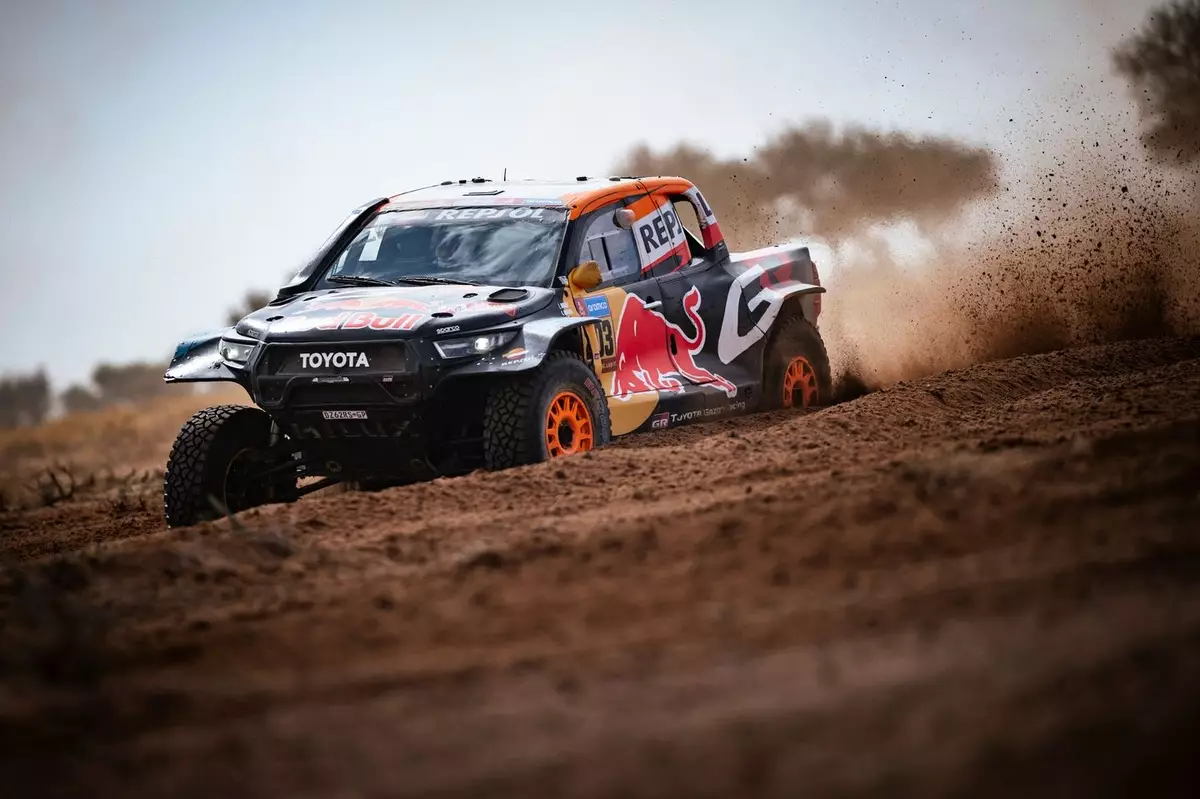The seventh stage of the Dakar Rally unfurled in an unexpected manner, turning pre-established trajectories on their heads. On this day, Toyota’s Lucas Moraes showcased a spectacular performance, managing to outperform his Ford rival, Mattias Ekström, amid a plethora of challenges. The stage, significantly shorter than usual at 418 kilometers around Al Duwadimi, presented teams with severe adjustments to the route and critical timing changes. These amendments were not merely procedural; they were essential for the safety of competitors, allowing medical helicopters to operate effectively.
Dakar competitors are familiar with the unpredictable whims of nature, but a sudden rain shower introduced an added layer of complexity to the terrain and navigation on Stage 7. The slippery roads destabilized many drivers, compounding the existing difficulties they faced. To further exacerbate the situation, a significant roadbook error at the 158km mark caused numerous competitors to stray from their intended route. This forced the organizers to neutralize a challenging 20-kilometer segment of the stage, impacting both timing and strategy.
Moraes, however, thrived in what many would deem chaos. His triumphant return comes after a severe mechanical failure the previous day, which had cost him over three hours of time and effectively sidelined him from the running for the overall championship. His victory, an impressive 7 minutes and 41 seconds ahead of Ekström, not only reclaimed his standing but signaled to spectators that resilience and adaptability are as crucial as speed.
As competitors navigated this chaotic stage, it became apparent that the dynamics of the race could shift instantly. Initially, Mattias Ekström had established himself as a strong contender by leading at the first checkpoint. However, the progression of the stage saw him slip to fourth position. Nevertheless, persistence paid off for the Swede, who tactically adjusted to regain lost ground. By the end of the grueling test, he managed to secure a commendable second place, marking his best performance of the Dakar 2025 thus far.
Possibly lost in the shuffle, teammate Mitch Guthrie Jr. also put forth a stellar effort, rounding off a solid performance for Ford with a third-place finish. The adjustments made by the organizers pertaining to the road errors became crucial as they revised the final standings, leading to significant shifts in the leaderboard.
One of the most riveting aspects of Stage 7 was the shifting fortunes among the competitors. Five-time Dakar champion Nasser Al-Attiyah’s experience was put to the test as he lost significant time owing to the roadbook error. However, through strategic navigation, he regained his speed and finished fourth. This positioning proved crucial as it brought his overall deficit down to less than 22 minutes behind the leader.
In the broader context of the competition, the overall standings indicated an intriguing tightening of the race. Henk Lategan, who had held a noteworthy lead, encountered considerable difficulty, losing 15 minutes on this stage and causing his advantage to nearly evaporate. Close on his tail were Yazeed Al-Rajhi—who consistently proved himself throughout the rally—and Ekström, each less than 10 minutes behind. With only five stages remaining, the race for the coveted title was far from over.
Stage 7 of the Dakar Rally stood as a testament to the unpredictability of motorsport. Factors such as the weather and road conditions can drift a well-prepared plan into chaos, and drivers must adapt swiftly to reclaim their place in the race. Lucas Moraes’ victory serves not only as a celebration of skill and resilience but also underscores the spirit of the Dakar Rally—an unforgiving yet exhilarating test of human endurance and ingenuity.
As the event progresses, the stakes have significantly risen. With major contenders closing in on the overall leader, the remainder of the Dakar Rally promises to be a fierce contest, not just of speed and skill, but of strategy, perseverance, and perhaps most importantly—the willingness to embrace uncertainty in the relentless pursuit of victory.


Leave a Reply